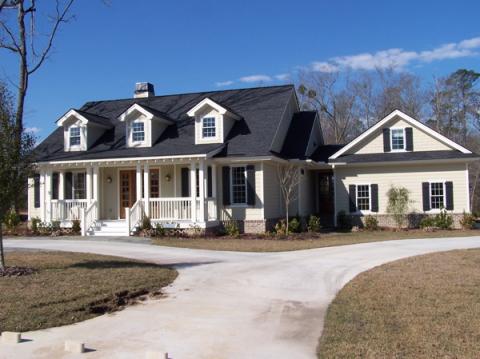
Some homes in golf communities, like Southbridge, near Savannah, are starting to make the foreclosure lists. Georgia does not have a right to redemption law but, in some states, an owner who has defaulted on a loan could retake the property.
More and more pre-foreclosure sales are popping up in golf communities. I noted one today in Southbridge, a nice community 15 minutes from Savannah that features a Rees Jones designed golf course (semi-private). The 3 BR, 2 ½ BA two-story home is listed at $379,900 in a golf community whose homes average a couple of hundred thousand dollars more. When I played the course a few years ago, I thought its condition left something to be desired, but the layout was a joy and with a little care, the course could hold its own against the upscale local competition. Southbridge also includes a large and active spa in its expansive clubhouse.
If that Southbridge home doesn't sell in the coming weeks, it will go to a foreclosure auction at which some lucky bidder will pick it up for less. One extra piece of luck for the winning bidder is that the state of Georgia has no right of redemption.
Until I attended a New Principles and Practices in Real Estate course, I did not realize that if you purchase
If the borrower (known also as a mortgagor) can raise the necessary funds to pay off all the debts to the lender within a statutory period of time, then the borrower can retake possession free and clear. The lengths of the statutory periods vary from state to state, and in some states, like my own Connecticut, the right of redemption applies only to tax defaults, not mortgage defaults. In other words, if a municipality in Connecticut forecloses on your home and sells it at a foreclosure auction, you have six months to settle your tax debt (plus costs) and retake the home -- even if the purchaser is living in it. In Alabama, the mortgagor has up to a year to clear all property-related debts and redeem his property. At the other end of the scale, Georgia, Texas and a few other states provide no statutory rights of redemption.
Anyone who purchases a foreclosed property needs to be mindful of the state statute in which they are buying and should not commit to any expensive renovations until the period of redemption has passed. In effect, once you own the foreclosed property, you may not in fact own it for a period of months.



